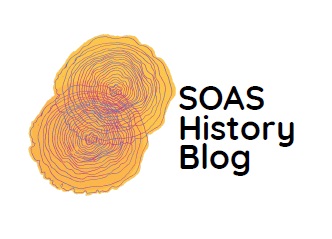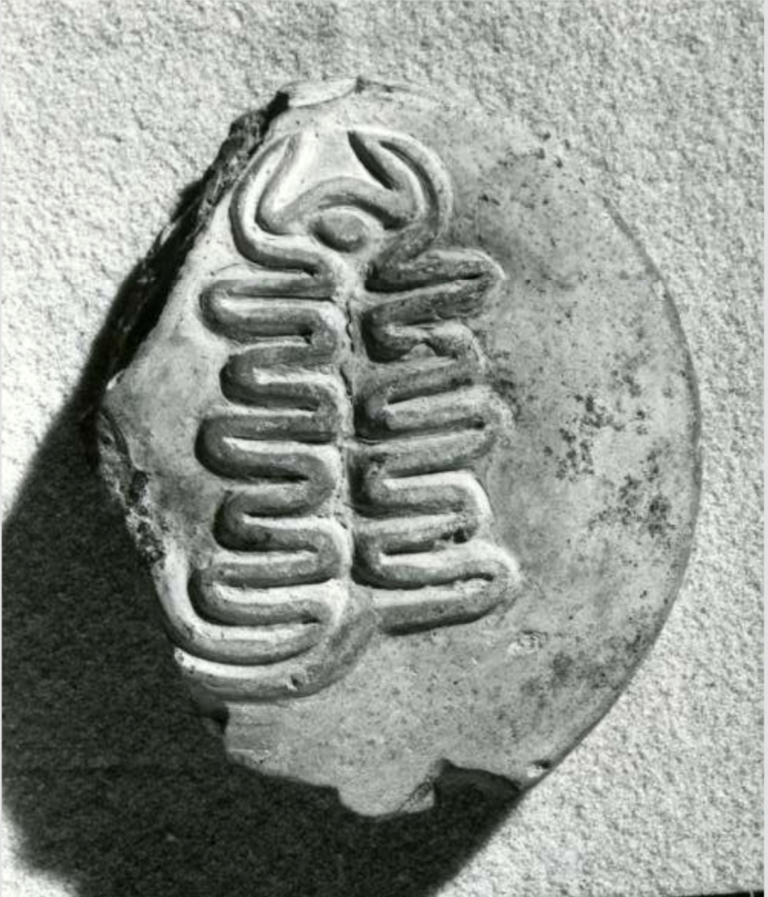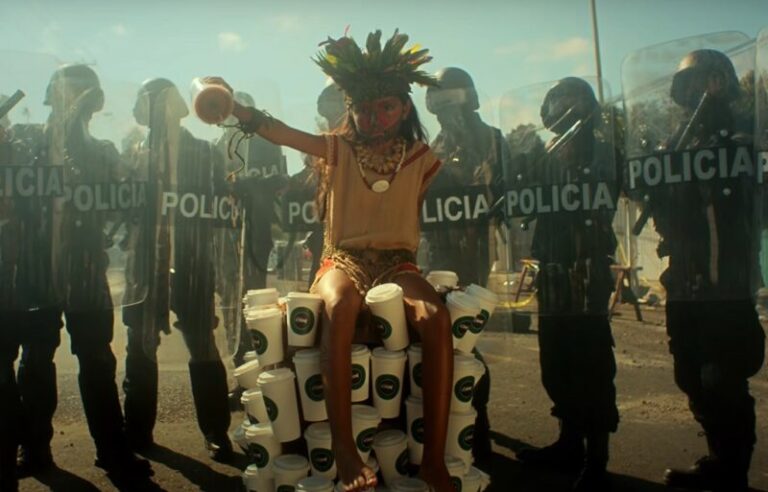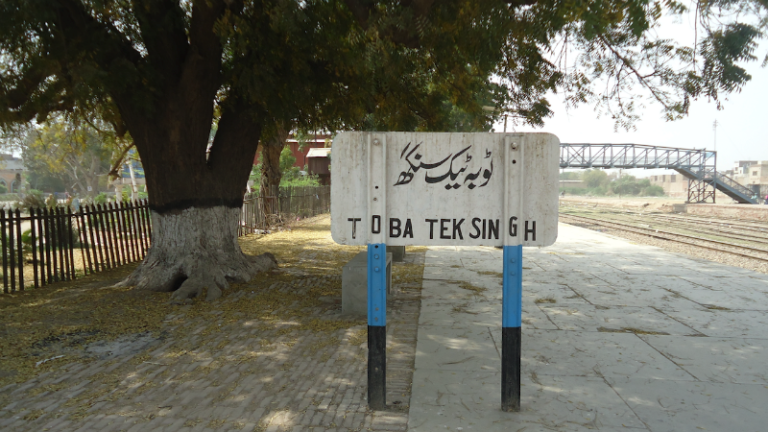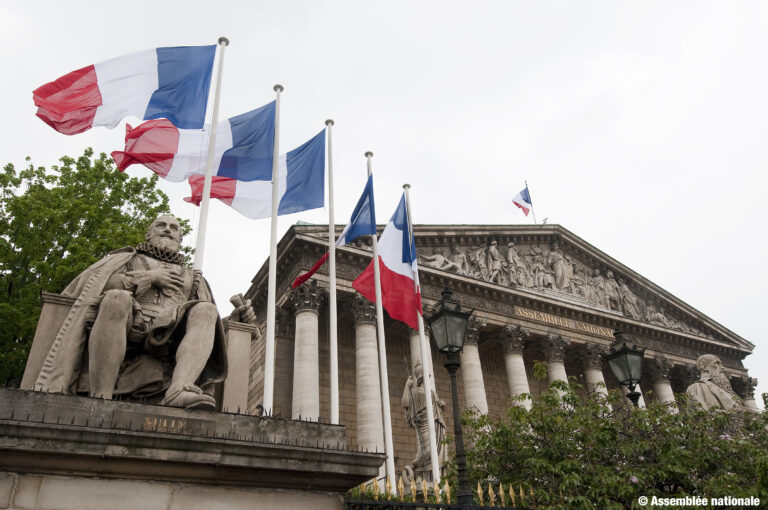SOAS History Blog Podcast, Ep. 3: Sudanese History through Music
More about this episode

Saffa Khalil
Interviewee
she/her
Saffa is an interdisciplinary researcher and recent SOAS graduate in History and African Studies. Her work is mainly concerned with the ability of music to shape our understanding of transnational identities and historiography. She is committed to creating work outside of the boundaries of mainstream academia by adopting mediums such as film, sound and storytelling to present her research.
Dissertation Abstract: From intimate moments to more comprehensive historical events, Sudanese music provides a lens into often overlooked and overshadowed aspects of Sudanese history. Unfortunately, the country’s political turmoil has skewed researchers away from approaching Sudan’s extensive musical history. As a result, Sudanese music has been largely under-researched and misrepresented in our understanding of what Sudanese music can convey. This dissertation examines how Sudanese music has shaped the nation politically, culturally, and socially. Building on the research available, the musical traditions of Sudan prove to be extensive.
Email: saffa@live.nl
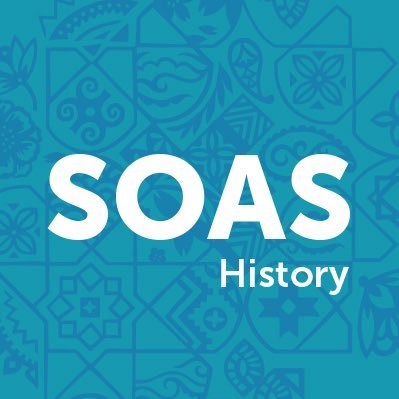
Walter Rodney Dissertation Awards
2020-2021
In her foreword to the new edition of Walter Rodney’s How Europe Underdeveloped Africa (Verso 2018, first published in 1972) Angela Davis points to the extent to which Rodney’s work has transformed the field of African history. More importantly, she highlights the close connection between painstaking historical research and anti-racist activism Rodney’s life exemplifies. She portrays him as the quintessential ‘scholar-activist’ whose research was passionately linked to his determination to change the world for the better, the much needed ‘brilliant example of what it means to be a resolute intellectual who recognizes that the ultimate significance of knowledge is the capacity to transform our social worlds.’ This is probably the best way to capture the spirit of the Walter Rodney Dissertation awards.

Hengameh Ziai
Interviewer
she/her
Henny Ziai is a Lecturer in the History of the Middle East and Africa at SOAS. Her current research project is on histories of debt, capitalism, and political resistance in Ottoman Sudan. She uses the archive of the Mahdist rebellion as a conceptual repository through which to reinterpret those histories.
SOAS Staff Profile: Hengameh Ziai

Podcast Production
SOAS History Blog
Transcription: Haritha Balasubramaniyan
Sound, editing, production: Ellan A. Lincoln-Hyde
Studio: SOAS Radio
Samples of music in this podcast have been for research and academic discussion only.
Podcast transcript
This is a SOAS History Blog Podcast. In this installment, we bring you Walter Rodney Prize winner Saffa Khalil discussing her award-winning dissertation with SOAS staff member Henny Ziai. For further information about the music used in this podcast, please see the Blog and SoundCloud descriptions for this episode.
Song 1: Anaa ‘Iifriqi ‘Anaa Sudani. Performers – Ibrahim El-Kashif; Composer: originally by Al-Atbrawi, revised by Ibrahim el-Kashif (c. 1958)
Hi!
Hi Saffa, it’s really great to finally meet you and looking forward to having this conversation about your dissertation which was called “Can we hear the past? An analysis of Sudanese history (1820-2019) through music considering its influences in shaping its past and present”. Congratulations – this was an award-winning dissertation – it won the Walter-Rodney Dissertation Award at SOAS.
Thank you so much!
So, the first question I would like to ask you is how did you get the idea for this project and how did it take shape?
I think it goes back to the revolution that occurred 2018-19 onwards. I was attending a lot of protests and political rallies and I was talking a lot to my parents and family members. One thing that was always constant was the fact that there was always music around, and it was a particular type of music that I would always hear. It really made me start to look inwards into music that I was listening to when I was younger and the music that was always played around the house. I wanted to understand it a bit more because I was on this ongoing journey of understanding what being Sudanese meant to me, understanding Arabic a bit better, actually engaging with my culture, sitting down and listening to these songs and then really realising how political they were. Even if they weren’t necessarily political in the sense that they were explicitly saying stuff, just understanding the history of Sudan a bit better and understanding ‘insider’ things that I wouldn’t have picked up otherwise really made me think “there is so much in this, why haven’t more people done anything with it?”
I was very surprised as well to find out that very little had been written on the history of Sudanese music. Well actually, thinking about history through music. So how did you conduct your research?
Conducting my research was very difficult. There is not a lot written about Sudanese music academically, so looking for secondary resources was quite difficult. On top of that, there was a language gap as well. I think I found about maybe three or four really great resources that I could use. In order for me to negate the fact that there wasn’t that much literature available, I conducted a lot of interviews and looked for other ways to engage with understanding, listening to the music and making up my own arguments about it as well.
Did you look for lyrics online – was that something you could do as part of your research?
Another part, that’s quite difficult. Not necessarily all songs have their lyrics written out. So what I ended up doing was actually sitting down with my parents and talking to my dad predominantly, about these songs. I asked him about what were some highlights in your days or what are some of the songs you’ve been told about and likewise did that with my mom and similarly, other family members and family friends to cross-reference which songs were really popular or meaningful. I also listened to them, for my own understanding of Sudanese Arabic and comprehension and then sat down with my dad and translated them into Arabic, like written down, and then he translated that into English for me and then I listened to it in Arabic. Then I read it in English and picked out the points that I think are important or that I wanted to emphasise in my dissertation.
Was there anything that surprised you in your research findings?
A lot of people that I spoke to, whether they were artists or just family friends or anyone really, that had an interest in this project was really excited about it. As soon as I told them about it, a world lit up, especially when we spoke about music. It wasn’t necessarily that the way I conducted my interviews was very informal and very much open-ended questions and that I really just wanted them to engage with me about how they felt about music, what they thought was important and how they see themselves in a larger picture of what we think about Sudanese history. When I did that, I started to notice how important Sudanese music is to Sudanese people on such an interpersonal and intimate level. That a lot of people, although they might not be avolute fans of Sudanese music, still have such a strong relationship to it. That really just surprised me. The fact that so many people then also told me “Oh you should speak to this person!” or “I should redirect you to this person” because they’re going to want to talk about this, really surprised me.
What makes this approach of studying history through music different from other kinds of history writing? What kinds of insights did you gain through looking at music?
I think it allows you to see the subject a bit more, I don’t want to say more humane but it allows you to interact with them in your own way, right? So there’s a sense of emotion attached to it as well. As soon as you’re listening to the music, you’re really immersing yourself in the different situation that the song was written for, whether that was the artist’s intended preference or not. I think engaging with music also allows you to not necessarily think about what are the facts per se, but also allows you to think about how people felt throughout those periods of time that were arguably very important in history. They also still play a large part in our understanding of what those situations unfolded like.
You mentioned in your dissertation that you saw music as a kind of oral history.
I’m such a big fan of oral history, so I should put that out. I love it, ten out of ten! When I started engaging with oral history and then looked at my own thesis and the way we understand music, especially in the Sudanese context where it is already so politicised, I thought that these songs in of itself and the way they explain so many aspects of Sudanese history whether as social or political or anything else, could then also be considered as an oral tradition and oral history because it is still a means for us to understand significant parts of history. Although it might have been through popular music, it still is a valid way to interact with it.
Which piece of music did you like the most of the ones you listened to?
That’s such a hard question. I don’t think there’s one particular piece that really stood out to me because I think all of them, and not to sound super cheesy, but all of the pieces that I mentioned in my dissertation are arguably such amazing pieces. I think this is the wider issue when it comes to understanding Sudanese music and I think what I want to emphasise within this dissertation as well, is that there are so many different jams. Even within one song, I could write a whole dissertation about just that one particular song.
That makes sense. I have a question about the relationship between music and writing subaltern history. More specifically, how does listening to music or using music as a source help us think outside of the narrow confines of the ‘nation’ or how the nation is usually defined in Sudan?
That’s a really good question. One of the things that has been discussed most in academic and mainstream discourse is whether or not Sudanese people can be defined as Arab or if Sudanese people can be defined as African, right? So when we look at our understanding of Sudanese music and how Sudanese popular music emerged throughout, you can see that it is the accumulation of all the ethnicities and ethnic groups that reside in Sudan, but also all of the different groups that came into Sudan. When we look, again, at how Sudanese music has been so politicised over the years we can also see that there is a particular reason why it has been politicised. A lot of regions in Sudan have used music to express themselves, advocate for themselves and make themselves known. A showcasing of their existence, essentially. When we then understand how popular music has been predominantly produced by the most marginalised in Sudanese society, we can understand that oftentimes, these very constricted ideas that we have about Sudanese identity don’t really make sense in the larger scheme of what Sudanese music and Sudanese identity is.
I might be wrong and please correct me if I am, but I’m under the impression that Sudanese music, even in Arabic, tends to have more in common with the sounds that you would hear from Ethiopia than it does, for instance, Egyptian music. I think it is the pentatonic scale that the Sudanese and Ethiopians share. Is that also a way of complicating Arab identity in Sudan – by looking at that musical tradition and seeing that even (Sudanese) Arabic-language music has more in common with neighbouring countries in the Horn of Africa than it necessarily does with the rest of the Middle East?
I think that when you look at Haqeeba music especially, which is considered popular music in Sudan, you can see that the way in which it format itself is that it has a lot of indigenous styles in the way the beat sounds and the way the melody sounds. But the lyrics would often be Arabic. So when you hear the Arabic lyrics, a lot of people tend to categorise it as Arabic music or music under the MENA region, but when you think about it you can see the many layers that actually are there.
What can we learn about politics in Sudan and what are the insights that we can draw from your work?
It’s very interpersonal and it is very much complicated, but I think that music does so well in explaining and showcasing to us how people still manage to live through the hardships that they’re continuously facing throughout Sudan. Especially considering how people have, on a day-to-day basis, been finding different ways to make means through the hardships that have occurred. There has been political instability in the region since its conception so I think what the music really showcases is that there is so much to mourn, there is a lot of happiness as well. People still find ways to showcase resistance and people don’t give up – I think that’s what makes the music so emotional as well. Although they might not necessarily be singing about something political, they might just be singing a love song – singing a love song in a country such as Sudan that has such an authoritarian rule, makes it an important thing. The fact that people are able to speak out and preserve parts of themselves and parts of what they want to showcase to the world.
Was there a lot of interpretative work that you had to do yourself, or with your father or family to unpack what exactly was political about a piece of music?
My dad was telling me that a lot of the songs that I was listening to, although it might sound like a love song for a particular person, that particular person could oftentimes be seen or referred to as Sudan as a nation. So there’s a song called Azza fi Hawek which essentially translates to “my beloved Aza”. Aza in this scenario, is a person. But in the larger scheme of things, Aza can also be seen as being referred to as the nation Sudan.
Song 2: Azza fi Hawek. Performers: Students from the College of Music and Drama of Sudan University (2017)
So it becomes this very patriotic song about love of country, pride in country, endurance and going on and all of that. When you look deeper into some of these songs, there are a lot of metaphors. But that was also needed because you couldn’t explicitly say particular things. As you were saying, I think in the context of the people living in such a country, they would be able to pick up on that. It also alerts us to how amazing music is as a resource.
What about religious music? I’m curious as to how you address that because religious ritual and practice is also quite musical – it’s a source of musical inspiration and creativity.
Especially in the context of Sudan, with Sufism having such a big hold in the country – when Sudanese music under Bashir’s rule in 1989 when music was banned, the only music that he allowed to be played after that was religious music. So I think there is a really interesting way to look at that and understand “why religious music?” because he also allowed music that was advocating for his rule.
Maybe that’s something for a future project! Thank you so much for answering these questions, I’ve really enjoyed learning more about your project. Thank you for your time.
Song 3: Agricultural Revolution. Performers: Kamal Keila; Composer: Kamal Keila (1992)
You’ve been listening to a SOAS History Blog podcast. This episode was edited and produced by Ellan Lincoln-Hyde. For more content from the SOAS History Blog, find us at blogs.soas.ac.uk/soashistoryblog and follow us on Twitter @soashistory and on Instagram @soashistoryblog.
SOAS History Blog, Department of History, Religions and Philosophy, SOAS University of London
